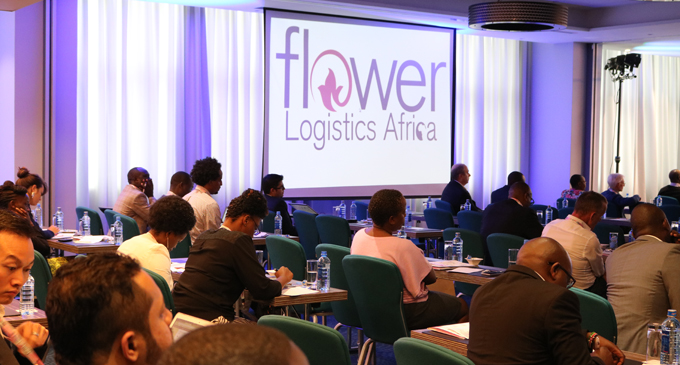Logistics on spotlight for the first time in Africa’s flower industry
Nov 11, 2016: It is estimated that for the African flower exporters, particularly those in Kenya, one of the world’s largest exporter of cut roses , the cost of logistics is anywhere between 40 to 60 percent of the total cost. This is humongous. Growers and flower exporters in Kenya want a solution to reduce the cost of freight. At the first ever Flower Logistics Africa conference that just concluded in Nairobi, the key takeaway was to collaborate with every stakeholder in the flower supply value chain to reduce cost, improve efficiencies of flower transport and make Kenya a global flower power that sets global benchmarks in production, transportation and distribution.
Making her keynote address at the inaugural edition of Flower Logistics Africa, organised by Logistics Update Africa, a key Africa focused transport and logistics publication from STAT Media Group, Jane Ngige, the chief executive officer of Kenya Flower Council (KFC) said that the Kenya flower industry need to ensure the ‘A’ quality flower leaving farms reach consumers in all destinations as the same ‘A’ quality.
 Conference participants acknowledged that there was the stereotype in Europe about the African flower not being the best quality. This, according to many participants, hinders African flower exporters from getting the best prices at auctions. “Many African growers are at a disadvantage as compared to their counterparts across the globe due to poor infrastructure support here in Kenya,” said Bimal Kantaria, director, Elgon Kenya, while participating in the opening panel discussion.
Conference participants acknowledged that there was the stereotype in Europe about the African flower not being the best quality. This, according to many participants, hinders African flower exporters from getting the best prices at auctions. “Many African growers are at a disadvantage as compared to their counterparts across the globe due to poor infrastructure support here in Kenya,” said Bimal Kantaria, director, Elgon Kenya, while participating in the opening panel discussion.
According to Ngige, flowers from Kenya are going to over 60 different destinations worldwide. “500 tonnes of flower airlifted daily from Kenya,” she added.
 At the two-day conference, the discussion was around the huge opportunity to grow the horticulture industry which, according to industry estimates, contributes to 7 percent of export. Participating in a variety of panel discussion, the consensus was that the industry is heavily dependent on Europe and the future lies in discovery of new markets.
At the two-day conference, the discussion was around the huge opportunity to grow the horticulture industry which, according to industry estimates, contributes to 7 percent of export. Participating in a variety of panel discussion, the consensus was that the industry is heavily dependent on Europe and the future lies in discovery of new markets.
Commenting on the challenges of the Kenyan flower industry Ngige pointed three key factors — perception that the African flower is cheap, there is market saturation and branding. How can the African flower position itself as the number one quality in order to access new markets like China? China is a new market already being explored by Ecuador because they have branded their product as high end quality.
“Lack of direct flights to new markets like America and transportation of flowers within Kenya are the other key challenges,” pointed out Jack Mwaura, group head of commercial for Siginon Aviation, while participating in the opening panel discussion around the theme of “Building sustainable cut flower supply chain”.
While Kenya has the geographical advantage, the industry has to quickly sort our minor hiccups like documentation and complicated process in getting licenses. “50 percent of problems we experience in the process relegate to documentation and mishandling by freight forwarders,” said one of the delegates participating in the discussions. The aim should be around fine tuning the process. It was heard at the conference that how Kenya flower industry can improve its competitiveness from the supply side so that Kenya can compete with other emerging flower exporting markets like Ethiopia and Israel. The demand at the conference was government needs to support local carriers like what Ethiopian government has done to reduce the cost of moving fresh produce.
Moderating a session on “trade agreements for market access: the pros and cons for the flower industry in Africa”, John Mathenge, executive director of Federation of East African Freight Forwarders Associations (FEAFFA) said, "Let us level the playground and do business together, we all have a role in ensuring quality delivery.”
Making her concluding remarks at the end of the two-day conference Ngige said, “We have planted the seed and have realized that we all have a stake in this conversation. We are looking forward to future talks. Much work still needs to be done and it all relies on collaboration between all suppliers and operators in the industry. We hope that next time this conference happens again, we will be looking at milestones based on discussions we had.”
Ngige added that this conference has opened up a whole new realm of areas that the Kenya Flower Council can tap into and begin work.




